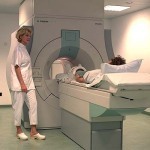by
Michael Johns, Project Manager | June 14, 2006

Nursing
Delivering Care to patients
Registered Nurse - Baccalaureate
Registered nurses (RNs) are the backbone of almost every health care facility in the nation. RNs provide patients with treatment and education, as well as participating in patient care evaluation and discharge planning. Responsibilities of a registered nurse may include understanding, administering, and evaluating the effects of a wide range of medicines, operating and interpreting intricate life saving equipment, and being caring and sympathetic to patients with severe injuries and illnesses. There are many specialties that an RN may choose such as intensive care, pediatrics, gerontology, surgical care, psychiatry, oncology, orthopedics, administration, or education.
Registered nurses are also in charge of supervising other nursing staff such as licensed practical nurses (LPNs) and certified nursing assistants (CNAs). Anyone interested in entering this field of nursing should be well organized, able to work well under pressure, able to form and maintain good interpersonal relationships, and have the ability to handle emergencies calmly. Academic ability and good study habits are also necessary for any student who is considering a career in nursing. Nursing is one of the most challenging and rewarding health careers and requires hard work and dedication to be successful.



Ad Statistics
Times Displayed: 137004
Times Visited: 7945 MIT labs, experts in Multi-Vendor component level repair of: MRI Coils, RF amplifiers, Gradient Amplifiers Contrast Media Injectors. System repairs, sub-assembly repairs, component level repairs, refurbish/calibrate. info@mitlabsusa.com/+1 (305) 470-8013
Work Environment
Registered nurses work in hospitals, nursing homes, public health departments, clinics, schools, physicians' offices, home health agencies, rehabilitation centers, mental health institution, the military, and industrial or corporate sites.
High School Preparation
Students interested in a career as a registered nurse should take courses in biology, chemistry, algebra, geometry, psychology, sociology, first aid, foods and nutrition, health occupations/medical professions education, physical education, English, computer skills, and foreign languages.
College Requirements
Individuals interested in a Bachelor of Science in Nursing Degree (B.S.N.) must complete a four-year collegiate program. Students who have an associate degree in nursing may enroll in a BSN completion program. The curriculum in these programs is usually divided between nursing and liberal arts/sciences. These programs include supervised clinical nursing experience that is provided in hospitals and other health care facilities. After receiving the B.S.N., students are eligible to apply to take the national licensure exam to become a Registered Nurse. Baccalaureate programs provide the foundation for a student to continue his or her education in a masters degree program or higher.

